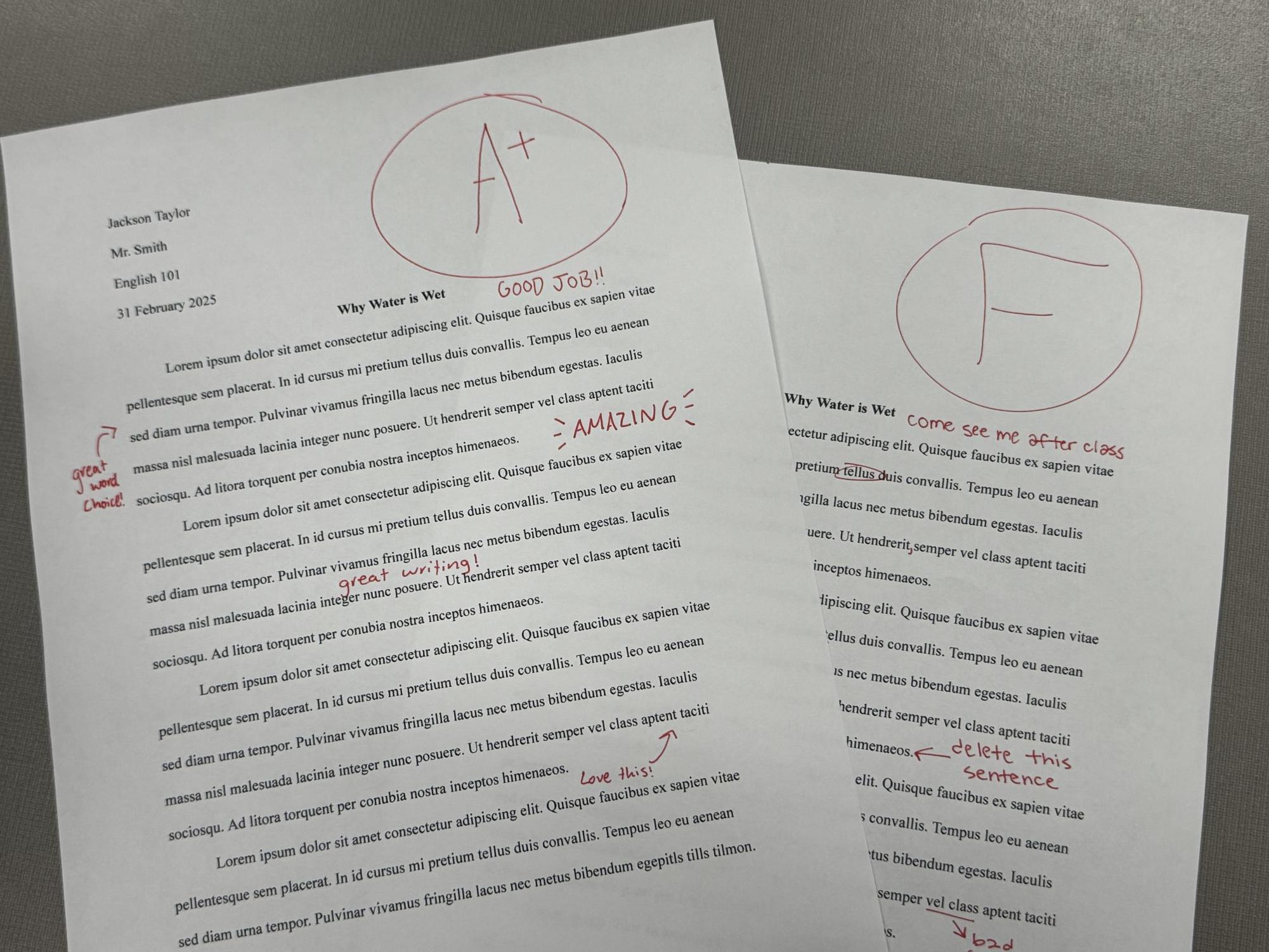Ensuring that every student gets an equal opportunity at success in high school should be an important component for all teachers. To do this, maintaining a consistent grading policy for classes taught by two different teachers is crucial. This is particularly important for high school instructors in charge of college courses because of the effects it has on not only a student’s high school grade, but also their college grade.
Teachers should act in the best interests of students and do a better job of coordinating with the other teachers on their levels to maintain high standards and reasonable expectations for their students’ learning and grades.
If there is a course that is taught by two different teachers, communication from both teachers is important to ensure the highest education for all students. For students who are in the more rigorously graded class, it is likely that their grade will suffer more than students in the less rigorously graded class, despite the fact that they probably have to work harder to maintain a high grade. This can be detrimental to students who put a lot of importance on their class rank, especially if they are trying to stay in the top 5% of students to get automatic admissions to public universities in Texas. A teacher with lower expectations compared to their course level counterparts’ expectations in another doesn’t provide an equitable education, and sabotages students putting in effort to maintain a high grade in a class that is graded harder than its counterpart. To avoid this discrepancy, teachers should maintain the same high standards for all students.
Not only do different grading policies sabotage the students in the harder-graded classes, but it also negatively affects the students who are in the easier-graded classes, because students know that they can still get high grades without having to put in a lot of effort. As a result, they are less likely to absorb the information because they know they don’t have to try as hard to get the same grade a student might get in the other class that has a stricter grading policy. For OnRamps courses, this can be especially harmful because students may let their college grade slip since they know that how they do on the college side does not affect their high school grade. This means students may be taking a college course meant to help them prepare for success in college, when in reality, they’re squandering the opportunity to gain college credit. Being too lax with expectations for students’ classwork and grades negatively affects them and shows them that the value of their education compared to their peers is not important.
The district should do what is best for students’ success and ensure a fair education for all students. To do this, teachers should hold all students to the same high standards that provide all students with the best learning environment possible.








